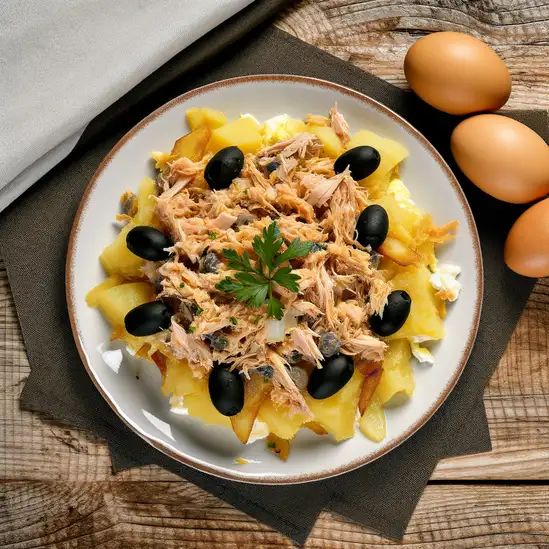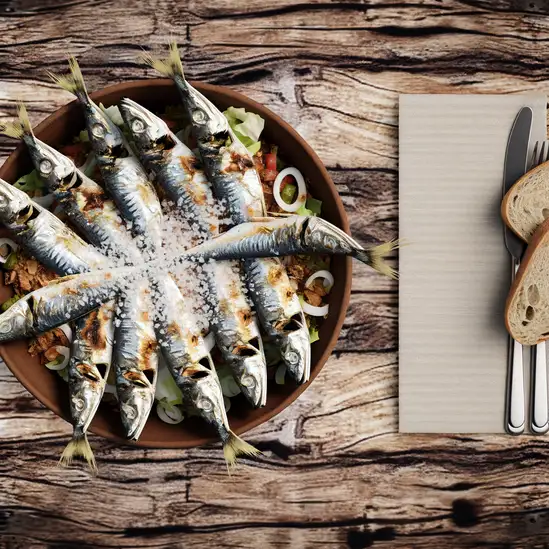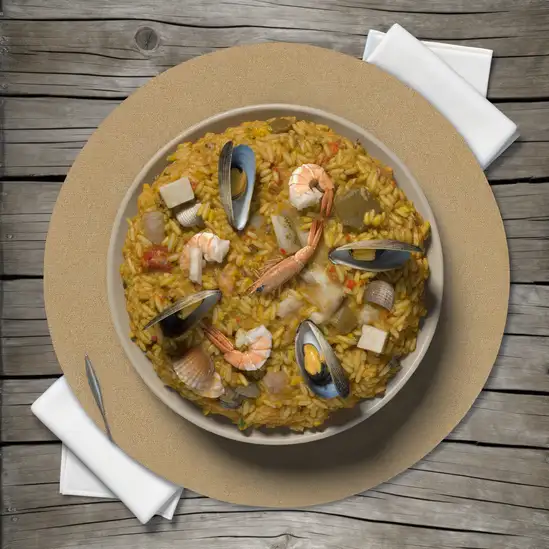



Imagine stepping into a place where the Atlantic breeze carries the salty scent of the sea,and golden cliffs frame endless stretches of sun-dappled beaches. That’s Lagos,Portugal—a town that feels like a warm embrace from the moment you arrive. The cobbled streets hum softly with the chatter of locals and the clinking of glasses from cozy cafés spilling onto sunlit squares. There’s a laid-back rhythm here,but beneath it pulses a rich history and a vibrant spirit that invites you to slow down and soak it all in. Wandering through Lagos,you’ll catch the scent of fresh seafood grilling nearby,mingling with the faint aroma of jasmine from hidden gardens. The pastel-colored buildings,weathered by time and salt air,lean into each other like old friends sharing stories. At the marina,fishing boats bob gently,their nets drying in the sun,while the distant call of seagulls blends with the soft crash of waves against the cliffs. It’s a place where every corner reveals a new texture—whether it’s the rough stone of a centuries-old church or the smooth,cool surface of a ceramic tile in a local shop. What makes Lagos truly special is its balance between the old and the new. You can explore ancient fortresses and then find yourself sipping a glass of vinho verde at a lively bar,surrounded by the laughter of both locals and travelers. The city’s warmth isn’t just in the sunshine—it’s in the people,the flavors,and the stories waiting to be discovered. If you want a place that feels like a heartfelt welcome and a gentle adventure all at once,Lagos is calling your name.
The information on this page is currently being reviewed by Tripkliq and should be used as a guide only
Eng word: Hello
Eng pronunciation: Oh-lah
Local language: Olá
Eng word: Goodbye
Eng pronunciation: Ah-deh-oosh
Local language: Adeus
Eng word: Thank you
Eng pronunciation: Oh-bree-gah-doo
Local language: Obrigado
Eng word: How much
Eng pronunciation: Kwahn-too koos-tah
Local language: Quanto custa
Eng word: Toilet
Eng pronunciation: Bahn-yay-roo
Local language: Banheiro
Eng word: Help me
Eng pronunciation: Ah-zhoo-dee mee
Local language: Ajude-me
Eng word: Yes
Eng pronunciation: Seem
Local language: Sim
Eng word: No
Eng pronunciation: Now
Local language: Não
Eng word: Excuse me
Eng pronunciation: Kohm lee-sen-sah
Local language: Com licença
Lagos, located in the Algarve region of Portugal, boasts a rich history dating back over 2000 years. It was initially established by the Phoenicians who were attracted by its excellent harbour.
During the Roman era, Lagos was known as 'Lacobriga' and was a significant outpost, where the Romans exploited its rich marine resources and established important trade routes.
In the 15th century, Lagos played a pivotal role in the Age of Discovery. It was the home port for many of the voyages to the West Coast of Africa, including those led by the famous explorer Prince Henry the Navigator.
Lagos is home to what is considered the first slave market in Europe, opened in the 15th century. Today, it houses a museum that educates visitors about this dark period in history while paying homage to the resilience of the human spirit.
To defend against pirate attacks and invasions, Lagos was fortified with walls during the 16th century. Some of these historic walls still stand today, offering a glimpse into the city's past efforts to protect itself.
One of Lagos' architectural jewels is the Igreja de Santo António, known for its exquisite Baroque style. Although rebuilt in the 18th century, it stands on the site of a much older church and is renowned for its ornate woodwork and historical tiles.
Lagos was heavily affected by the great earthquake of 1755, which caused widespread destruction across the Algarve. The city was rebuilt in the 18th century, leading to a blend of architectural styles that can be seen today.
The Forte da Ponta da Bandeira, built in the 17th century, is a significant historical monument in Lagos. It played a crucial role in the city's defenses, protecting it from pirates and invaders coming from the sea.
Though Portugal remained neutral during World War II, Lagos and the Algarve coast were strategically important for monitoring naval activity in the Atlantic. The region’s lighthouses were essential for guiding Allied ships.
In Lagos, the most common Power Adaptor is Type C, Type F.



A popular dish made with shredded salted cod, onions, and thinly sliced fried potatoes, bound together with scrambled eggs and garnished with black olives and parsley.

Famous Portuguese custard tarts with a flaky pastry crust and a creamy filling, often enjoyed with a sprinkle of cinnamon.

Grilled sardines, typically served during the summer months, seasoned with sea salt and often accompanied by bread and salad.

A rich seafood rice dish cooked with a variety of shellfish and fish, flavored with herbs and spices, similar to a risotto.

Grilled chicken marinated in a spicy piri-piri sauce made from chili peppers, garlic, and lemon, often served with rice or fries.

A hearty bean stew with various meats, including pork and beef, often served with rice and orange slices.

A seafood stew cooked in a traditional copper cataplana, featuring a mix of fresh shellfish, fish, and aromatic herbs.
Lisbon feels like a city that’s been gently kissed by the sun and the sea,where every street corner hums with life and stories. Imagine wandering through narrow,cobbled alleys lined with pastel-colored buildings,their azulejo tiles catching the light just right. The air carries a mix of salty ocean breeze and the rich aroma of freshly baked pastéis de nata—those flaky custard tarts you’ll find in every bakery. There’s a rhythm here,a kind of laid-back energy that invites you to slow down and soak it all in.
You’ll hear the soulful strains of fado music drifting from cozy taverns,a haunting soundtrack that feels like the city’s heartbeat. Locals chat animatedly over glasses of vinho verde or ginjinha,a cherry liqueur that’s as sweet as the conversations. The city’s hills offer stunning views where terracotta rooftops spill down toward the Tagus River,and the sunlight shimmers on the water like a thousand tiny mirrors.
Lisbon’s charm lies in its blend of old and new—ancient trams clatter past sleek street art,and centuries-old castles overlook buzzing markets filled with fresh seafood and vibrant produce. It’s a place where history and modern life dance together effortlessly,inviting you to explore,taste,and feel its unique pulse. Trust me,once you’ve wandered through its neighborhoods and tasted its flavors,Lisbon stays with you long after you leave.
Imagine stepping into a place where the ocean breeze carries the scent of blooming jacarandas and the distant hum of traditional Portuguese guitars fills the air—that’s Funchal for you. This city feels like a warm embrace,perched on the lush,rugged coastline of Madeira. Walking through its cobbled streets,you’ll notice vibrant markets bursting with fresh tropical fruits and the rich aroma of freshly baked bolo do caco bread. The colors here are alive:from the deep blue Atlantic stretching endlessly to the bright bougainvillea cascading down old stone walls.
Funchal’s charm lies in its blend of old-world grace and lively,modern spirit. Locals chat animatedly over glasses of Madeira wine in cozy tavernas,while street art peeks out from unexpected corners,telling stories of the island’s history and culture. The city pulses gently with a relaxed rhythm—you can feel it in the slow,deliberate pace of life and the genuine smiles of the people you meet.
Don’t miss the chance to ride the cable car up to Monte,where the views make your breath catch,or to wander through the botanical gardens,where exotic plants and butterflies create a quiet sanctuary. And when night falls,the harbor lights twinkle like stars,inviting you to savor fresh seafood paired with that sweet,fortified wine Madeira is famous for. Funchal isn’t just a destination; it’s a feeling you carry with you long after you leave.
If you ever find yourself dreaming of a place where the ocean breeze carries the scent of salt and blooming hydrangeas,Ponta Delgada is that kind of spot. It’s the lively heart of São Miguel Island in the Azores,and the moment you step into its cobbled streets,you feel this warm,welcoming pulse—like the city itself is breathing with you. The colorful buildings,with their intricate stonework and bright shutters,seem to tell stories of centuries past,while locals chat animatedly over coffee in cozy cafés that spill out onto sun-dappled squares.
Walking along the marina,you’ll hear the gentle slap of waves against boats and the distant call of seagulls,mingling with the laughter of children playing nearby. The air is fresh,tinged with the promise of adventure,whether you’re about to explore volcanic craters or dive into a plate of freshly caught seafood. Speaking of food,don’t miss trying the local cozido—a stew slow-cooked underground by volcanic heat,rich with flavors that feel like a warm hug on a cool day.
What really makes Ponta Delgada special is its blend of old-world charm and vibrant island life. There’s a relaxed rhythm here,where time slows just enough for you to savor a glass of local wine while watching the sun dip behind the hills. It’s a place that invites you to linger,to explore,and to fall a little in love with the simple,beautiful moments that make travel unforgettable.
Imagine stepping into a city where every corner hums with a quiet,soulful energy—that’s Porto. It’s a place where the old world meets a lively,modern pulse,wrapped in the warm glow of terracotta rooftops and the shimmering Douro River. Walking through its narrow,cobbled streets,you’ll catch the scent of freshly baked pastéis de nata mingling with the salty breeze from the Atlantic. The city feels alive but unhurried,like it’s inviting you to slow down and savor each moment.
Porto’s character is deeply rooted in its history,yet it’s effortlessly cool. You’ll find colorful azulejo tiles telling stories on building facades,while locals chat animatedly over glasses of rich,ruby-red port wine in cozy,tucked-away taverns. The sound of Fado music drifts softly from a nearby café,adding a layer of melancholy beauty to the evening air. It’s a city that wears its heart on its sleeve—warm,genuine,and a little bit mysterious.
What really makes Porto stick with you is how it tastes and feels. From the first sip of a perfectly chilled glass of Vinho Verde to the crunch of a francesinha sandwich packed with layers of flavor,the city’s culinary scene is a delicious adventure. And when you climb up to the Dom Luís I Bridge at sunset,watching the city light up like a living painting,you realize Porto isn’t just a place to visit—it’s a place to feel alive.
If you wander into Faro,you’ll immediately feel this laid-back,sun-soaked rhythm that’s both calming and quietly vibrant. It’s the kind of place where the old town’s cobbled streets invite you to slow down,and the scent of salty sea air mingles with the faint aroma of freshly baked pastries from a nearby café. Faro isn’t just a gateway to the Algarve; it’s a charming city with its own soul,where history whispers from every corner and locals greet you with genuine warmth.
Strolling through the city,you’ll notice the delicate play of light on the whitewashed buildings,the colorful tiles telling stories of centuries past. The cathedral’s bell tower offers a peaceful lookout,where you can watch fishing boats drift lazily on the Ria Formosa lagoon. At night,the city softens into a cozy glow,and the hum of conversation spills out from small tavernas where you can savor fresh seafood paired with a glass of crisp Portuguese wine.
What really makes Faro special is its blend of old-world charm and natural beauty. You can lose yourself in the maze of narrow streets,then hop on a boat to explore the nearby islands,feeling the breeze and hearing the gentle splash of waves. It’s a place that invites you to breathe deeply,taste slowly,and soak in moments that feel both timeless and refreshingly real.
If you ever find yourself wandering through Santa Cruz de Tenerife,you’ll immediately notice its lively,sun-soaked energy that feels both relaxed and vibrant at once. The city hums with a unique rhythm—where the salty ocean breeze mingles with the scent of fresh pastries from local bakeries,and the chatter of street markets blends with distant waves crashing against the shore. It’s a place where modern life and tradition dance effortlessly side by side.
Walking through its streets,you’ll be drawn to the colorful architecture,from sleek contemporary buildings to charming colonial facades,all framed by the lush greenery of palm trees and blooming bougainvillea. The plazas buzz with locals sipping strong coffee or sharing tapas,and the sound of Spanish guitar often drifts from cozy cafés. There’s a warmth in the air,not just from the sun,but from the genuine friendliness of the people who seem to take pride in their city’s rich culture and history.
What really makes Santa Cruz stand out is its blend of island charm and cosmopolitan flair. You can spend your morning exploring vibrant markets filled with tropical fruits and handmade crafts,then lose yourself in art galleries or catch a lively street performance. And when evening falls,the waterfront comes alive with twinkling lights and the tempting aroma of fresh seafood grilling nearby. It’s a city that invites you to slow down,savor every moment,and soak in the joyful spirit that lingers long after you’ve left.
Scammers may install skimming devices on ATMs to steal card information when tourists withdraw cash.
Street vendors may sell fake branded items or low-quality souvenirs at inflated prices.
Scammers may approach tourists claiming to collect donations for a fake charity or cause.
Tourists may be sold counterfeit tickets to attractions or fake tours that do not exist.
Scammers pose as official tour guides and offer overpriced or low-quality tours, often providing little value for the money.
Some taxi drivers may overcharge tourists by not using the meter or taking unnecessarily long routes.
Crowded tourist areas, beaches, and public transportation are hotspots for pickpockets targeting distracted tourists.
Some restaurants may add hidden fees or charge for items like bread or appetizers that tourists assume are complimentary.
Street performers may demand high fees after tourists take photos or interact with them, despite no prior agreement.
Tourists may be lured into attending high-pressure sales presentations for timeshares that are misleading or fraudulent.
Portugal has decriminalized the possession of small amounts of drugs for personal use, including cannabis. However, this does not mean that drugs are legal. Possession of small amounts may result in a fine or mandatory treatment, rather than criminal charges. Trafficking and possession of larger quantities are still criminal offenses and can result in severe penalties. Tourists should be cautious and avoid any involvement with illegal drugs.
In Lagos, Portugal, smoking is generally prohibited in enclosed public spaces, including restaurants, bars, and public transportation. There are designated smoking areas in some establishments, but it is important to look for signs indicating where smoking is allowed. Smoking is also banned in certain outdoor areas, such as near schools and playgrounds.
Vaping is subject to similar regulations as smoking in Lagos. It is prohibited in enclosed public spaces and public transportation. Some establishments may have designated areas for vaping, but it is advisable to check for signs or ask staff. Vaping is also restricted in certain outdoor areas, similar to smoking.
What are other people saying about Lagos?
Recent Social posts about Lagos
There is nothing to show you for now.